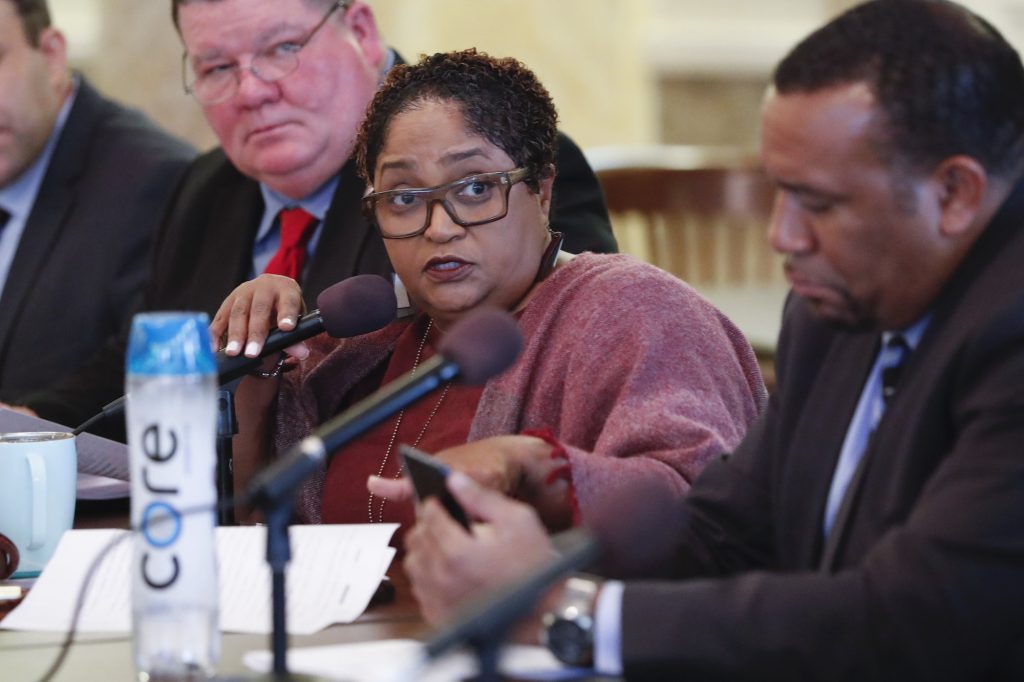Incarcerated pregnant women and mothers of minor children will gain new protections under Mississippi law after the state senators, like their House colleagues, unanimously passed House Bill 196, “The Dignity for Incarcerated Women Act,” on Thursday.
The bill requires the Department of Corrections to “place inmates who are parents of minor children within two hundred fifty (250) miles of their permanent address of record” and eliminates restrictions on the number of dependent children under age 18 who can have visitation privileges.
If Gov. Tate Reeves signs the legislation, MDOC would have to allow minor children to visit an incarcerated mother “at least twice per week” except in cases where there is “reasonable belief” they “may be harmed during a visitation” or pose “a security risk due to a gang affiliation, prior conviction or past violation of facility contraband policy.”
“The incarceration rate of women in Mississippi prisons has been on the rise with over 1,500 females in the Mississippi Department of Corrections system. National research shows that almost 80 percent of incarcerated women are mothers. … Allowing mothers to be in close proximity to their young children and access to visitation can promote good behavior, better post-release outcomes, and reduce recidivism rates,” Empower Mississippi, a libertarian-leaning organization that promotes criminal-justice reform legislation, says in a statement on its website supporting the legislation.
Bans Restraints, Cavity Searches on Pregnant Inmates
The bill would ban the use of restraints on a pregnant woman in Mississippi’s prisons for the duration of her pregnancy, during birth and for 30 days afterward except in cases where a “correctional facility employee has a reasonable belief that the inmate will harm herself, the fetus, or any other person, or pose a substantial flight risk.”

“Following the delivery of a newborn, by an inmate, the Department of Corrections shall permit the newborn to remain with the mother for seventy-two (72) hours unless the medical provider has a reasonable belief that remaining with the mother poses a health or safety risk to the newborn,” the bill states. “During that time, the Department of Corrections shall make available the necessary nutritional and hygiene products, including diapers, to care for the newborn.”
If signed, The Dignity for Incarcerated Women Act will also ban “invasive body cavity searches of pregnant inmates” unless done by a certified healthcare professional or in cases where “the correctional facility employee has a reasonable belief that the female inmate is concealing contraband.” In those cases, the bill requires the employee to submit a written report to the warden within 72 hours explaining the rationale for the search.
The Department of Corrections must also “ensure that sufficient menstrual cycle products are available at each facility for all incarcerated women that have an active menstrual cycle” and that “female inmates who otherwise qualify as indigent shall be provided menstrual hygiene products as needed at no cost,” the bill says.
The bill’s principal sponsor is Republican Rep. House Nick Bain of Corinth. Co-sponsors include: Rep. Sonya Williams-Barnes, D-Gulfport; Rep. Lataisha Jackson, D-Como; Rep. Jansen Owen, R-Poplarville; Rep. Debra Gibbs, D-Jackson; Rep. Zakiya Summers, D-Jackson; Rep. Rob Roberson, R-Starkville; Rep. Carolyn Crawford, R-Pass Christian; Rep. Carl Mickens, D-Brooksville; Rep. Otis Anthony, D-Indianola; Rep. Dan Eubanks, R-Walls; and Rep. De’Keither Stamps, D-Jackson.
The bill cites findings that children “who grow up with parents in prison are six (6) to seven (7) times more likely to become incarcerated themselves,” but “have increased cognitive skills, improved academic self-esteem, greater self-control and change schools much less often” when they are allowed to visit incarcerated parents.
‘Restoring Compassion and Dignity’
The new law would require MDOC to “develop and provide to all correctional facility employees and correctional officers who have contact with pregnant inmates training related to the physical and mental health of pregnant inmates and fetuses.”
Along with Empower Mississippi, the American Civil Liberties Union of Mississippi also backs the bill. Bain’s legislation borrows much of its language from model legislation that the American Legislative Exchange Council, a conservative organization that largely focuses on promoting business-friendly bills in states, proposed in 2018. Mississippi House Speaker Philip Gunn sits on ALEC’s board of directors.
“Dignity for Incarcerated Women” legislation has grown popular nationwide in recent years on a bipartisan basis.

“The ‘Dignity for Incarcerated Women’ movement has been widespread, and several southern states like South Carolina, Florida, Arkansas, Louisiana, and Texas have accepted the charge to pass legislation centered on restoring compassion and dignity to their prison systems,” Empower Mississippi said in its statement of support for the bill. “With the Mississippi prison system currently under the microscope of the Department of Justice, passing this legislation would be a step in the right direction.”
In 2017, Democrats in the U.S. Senate introduced a national “Dignity for Incarcerated Women Act.” The bill, which then-Sen. Kamala Harris championed before she was vice president along with fellow Democratic U.S. senators Elizabeth Warren of Massachusetts, Cory Booker of New Jersey and Richard Durbin of Illinois included many of the same provisions that the Mississippi bill includes.
“The drastic increase in the women’s prison population has destroyed communities, torn families apart and done little to promote public safety,” Harris said in a 2017 statement introducing the federal bill. “This has also had a deep impact on children. In order to create lasting improvements to public safety we have a responsibility to not only reunite women inmates with their families, but to also support the rehabilitation and re-entry of these women inmates into society. In doing so, we must improve the environment in prisons to ensure they are able to maintain a level of dignity and respect.”
Under then-U.S. Senate Majority Leader Mitch McConnell, a Kentucky Republican, the national bill died in committee during the 2017-2018 session. After the same group of Democrats re-introduced it in 2019, it once again languished for more than a year before once again dying in committee without a vote on Dec. 31, 2020. Lawmakers have not yet re-introduced the national version of The Dignity for Incarcerated Women Act since Democrats took control of the upper chamber of Congress in January.










